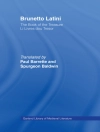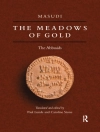In ‘The Editor’s Relations with the Young Contributor, ‘ part of his broader work ‘Literature and Life, ‘ William Dean Howells delves into the intricate dynamics between editors and emerging writers. Employing a conversational tone that is both instructive and empathetic, Howells reflects on the editor’s crucial role in shaping literary voices and the challenges faced by fledgling authors. This piece not only illuminates the ethical responsibilities of editors but also underscores the evolving nature of literary criticism during a period marked by the rise of realistic storytelling at the close of the 19th century. Here, Howells’s nuanced understanding of the publishing landscape is evident, making the text a valuable resource for both aspiring writers and established professionals alike. William Dean Howells, a prominent figure in American literature and a champion of realism, drew upon his extensive experience in the editorial world to craft this insightful discourse. Throughout his career, he has supported and mentored numerous writers, advocating for a literary culture that values diverse perspectives. His commitment to fostering new talent resonates deeply in this work, offering guidance based on both his editorial pragmatism and his artistic sensibilities. This book is highly recommended for anyone interested in the art of writing and publishing. Howells’s thoughtful exploration provides not only practical advice but also profound reflections on creativity and the interconnectedness of the literary community. Readers will find themselves equipped with both inspiration and insight, making it an essential addition to the library of any aspiring writer or literary scholar.
Despre autor
William Dean Howells (1837-1920) was a prominent American literary figure, celebrated for both his extensive work as a novelist and critic and for his leading role in American letters during the late 19th and early 20th centuries. Howells was a proponent of realistic fiction, serving as an advocate for the depiction of everyday American life with fidelity. This philosophy led him to be called ‘The Dean of American Letters, ‘ a title that acknowledged his influence in shaping American literature and literary standards of his time.
Howells penned numerous novels, including ‘A Modern Instance’ (1882), and ‘The Rise of Silas Lapham’ (1885), which earned him a reputation for portraying the challenges and nuances of social and moral issues within the framework of realism. His work often emphasized ethical conflicts and social critique, while maintaining a narrative accessibility that made his novels popular among a wide readership. In addition to his fiction, Howells also authored essays on literary theory, as exemplified in his book ‘The Editor’s Relations with the Young Contributor’ (from ‘Literature and Life’), where he offered insights and guidance to aspiring writers.
His tenure as editor of ‘The Atlantic Monthly’ further solidified his status as a literary gatekeeper, as he championed emerging writers and the realist movement. An extensive correspondent and a friend to authors such as Mark Twain and Henry James, Howells was deeply enmeshed in the literary culture of his day. His participation in literary circles, his critical essays, and his own fictional works, make him a central figure in the annals of American literature.












